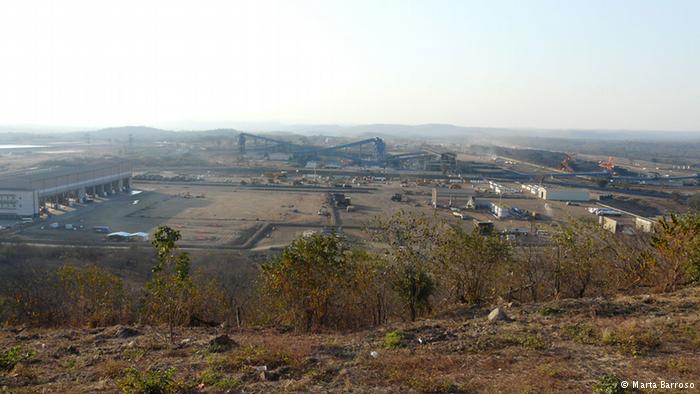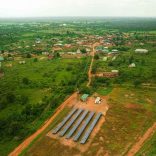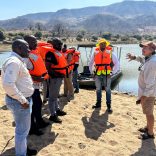Mozambique: EDM wants to ensure power supply in anticipation of industrial production needs
Economist says Vale Mozambique is making light of difficulties

DW / The coal mine operated by Vale in Moatize is considered one of the world's largest
Brazilian mining company Vale says that the suspension of coal transport of coal via the Sena rail line in Mozambique will have no impact on production. Economist Orlando da Conceição said that it is hard to believe.
“I think the situation is more serious than Vale is prepared to admit,” says the economist.
On June 8, mining company Vale suspended rail deliveries of coal from its Moatize mine, one of the world’s largest, following firearm attacks on its locomotives, with injuries to its drivers and engineers.
Following this, the multinational has announced that, so far, there has been no negative impact on production or exports.
DW Africa interviewed economist Orlando da Conceição on the possibility of mining companies withdrawing from the country because of armed attacks, further weakening Mozambique’s situation.
DW Africa: Vale has since June 8 temporarily suspended the transport of coal because of attacks on its trains. The company says that this hasn’t had any effect, or at least not so far. Is this possible, given that, for example, they are paying workers who are not producing, while they still have commitments to customers? Is it possible that a company stops its production and has no losses?
Orlando da Conceição (OC): It is a little difficult to give you a concrete answer, but, speaking in general, I tell you that companies have communications and marketing policies, and have to maintain the image of being profitable companies. And in that field everything is justified, even saying that these issues do not affect [companies]. But the price of coal is low, so not to distribute it but just have it in stock with only expenses without this having any effect is a bit difficult to believe. So I believe the situation is much more serious than Vale is admitting.
DW Africa: If confrontations lead Vale to suspend its activities in Mozambique, what would, the consequences for the country be?
OC: The first consequence, among many, would be to send a very negative signal to the world. Vale is a multinational company. It would be a very negative signal for Mozambique as a destination for foreign direct investment. Vale invested in the country, which has a huge potential in the area of coal. They were huge investments, and to withdraw from Mozambique, would send that signal and it would not be good at all.
Apart from this, we have also the question that at this point the country is facing difficulties in its relations with international cooperation partners, and this [Vale withdrawing] would involve huge losses in tax revenues. That would be the second major consequence I can indicate.
We also have the social issue, which also impacts the economy. Unemployment has consequences that are not only economic, but also social, direct and indirect. Vale also has social responsibility programs, both implemented and planned, which would obviously be suspended.
The ultimate consequence is that Vale benefits from various services at provincial level. I know people who have invested in providing custom-built services to Vale. These are people who will not be able to recover their investments, with no way of recovering it, and will lose their income as well. I am talking about businesses in the catering area, hotels, car rental and so on.
DW Africa: At a time when the price of coal is low in the international market, the issue of infrastructure has not yet been fully resolved. With this political crisis, is there a risk of mining companies, in general, leaving the country?
OC: It is a reason, yes, and I believe that this decision has been postponed. It could have been taken earlier, but I think the companies have been putting it off. But now, we come to a situation where there is no other choice but to leave. Together, of course with the others, but this is the main reason.
DW Africa: Recently, a senior Vale manager was in Maputo. Do you think the financial and economic crisis in Mozambique could put the country in a weak position, perhaps of having to make concessions to multinationals?
OC: I believe so. Mainly because, as I said, Mozambique is in a very precarious situation. As regards tax revenues, we need foreign direct investment. We need to keep what is already here and attract more. We can not afford to lose a company of Vale’s size. We already lost Rio Tinto, though it is true that it sold its assets to another company that continues to operate here, but we can not afford to lose Vale. So we will have to make concessions and I fear they may be concessions that will then leave us in an even more debilitated situation. Already there is an internal debate on the terms under which the contracts for mega-projects were signed. I fear these will be much more unfavourable for Mozambique going forward.













Leave a Reply
Be the First to Comment!
You must be logged in to post a comment.
You must be logged in to post a comment.